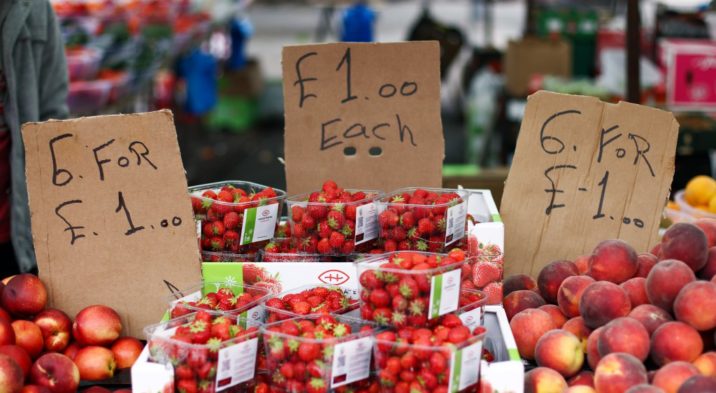
By Karla Adam | 8 January 2017
Washington Post
LONDON — It is a quintessentially British scene: watching the annual Wimbledon tournament while munching on British strawberries and cream.
But farmers here are warning that fruits and vegetables — including their beloved strawberries — could be left to rot in the fields this summer because Eastern Europeans are reluctant to work on British farms following the Brexit vote.
Britain’s immigration policy will be one of the central themes of the upcoming Brexit negotiations, which are expected to last up to two years. And many industries that rely on foreign labor — from construction to cleaning — are anxious about continued access to migrant workers after Britain leaves the European Union.
But the agricultural industry says it is already struggling with a worker deficit.
A recent survey by the National Farmers Union (NFU), an industry lobbying group, found that 47 percent of the companies that provide agricultural labor said they did not have enough workers to meet demand between June and September of last year.
Britain’s horticulture sector is hugely reliant on its 80,000 seasonal workforce, the vast majority of whom come from Eastern Europe. The industry is calling on the government to introduce temporary work visas for foreign workers from countries outside the E.U., such as Ukraine or Bosnia.
“Every strawberry at Wimbledon last year was picked by an Eastern European. If we don’t want shortages going forward, we need to get a new visa scheme sorted now,” said John Hardman, director of HOPS Labor Solutions, one of Britain’s largest recruiters of migrant farm labor.
Speaking from an airport in Romania, where he recruits many of the 12,000 seasonal workers his company helps to bring over from Eastern Europe, Hardman said that Britain is becoming a harder sell because of the devalued currency and perceptions of xenophobia.
After the vote last summer, there was a spike in anti-immigrant assaults, and recruiters say such reports spread quickly in migrant communities.
“It’s enough to have a few people that have bad experiences, and they put it on Facebook or Twitter, and it’s enough to push so many people away,” said Estera Amesz, co-founder of AG Recruitment, a British agency that brings in agricultural workers from the E.U. She said the firm’s Romania office has seen a 40 percent drop in the number of people inquiring about jobs on British farms over last year at this time.